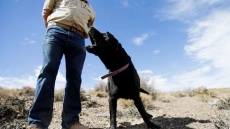Scientists have created cells that can detect changes in the brain associated with learning, memory and reward.
The engineered cells with fluorescent dyes change colour in response to specific neurotransmitters.
Called CniFERs, these cells can detect in fine resolution the location and timing of small amounts of neurotransmitters, either dopamine or norepinephrine.
"Dopamine is a ubiquitous molecule in the brain that signals 'mission accomplished'. It serves as the key indicator during almost all aspects of learning and the formation of new memories," said David Kleinfeld, professor of physics at the University of California, San Diego in the US.
"By implanting these cells into living mammalian brains, we have shown how neurochemical signalling changes as a food reward drives learning," he added.
To understand this, Arnaud Muller and Victory Joseph from Kleinfeld's laboratory implanted CNiFERs into the frontal cortex in mice.
They watched how signalling changed as the mice learned to associate a sound with a sweet reward.
The researchers found that dopamine was initially released with the reward as the mice learned to associate previously neutral signal with something pleasant.
In mice that failed to learn or made only a weak association, the anticipatory release of dopamine was reduced as well.
"This work provides a path for the design of cells that report a large and diverse group of signalling molecules in the brain," Kleinfeld concluded.
The paper was reported in the journal Nature Methods.





